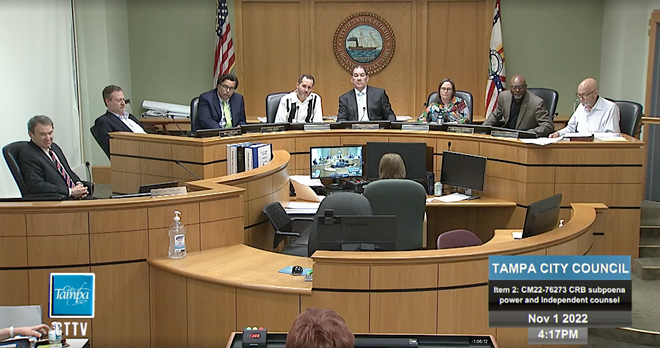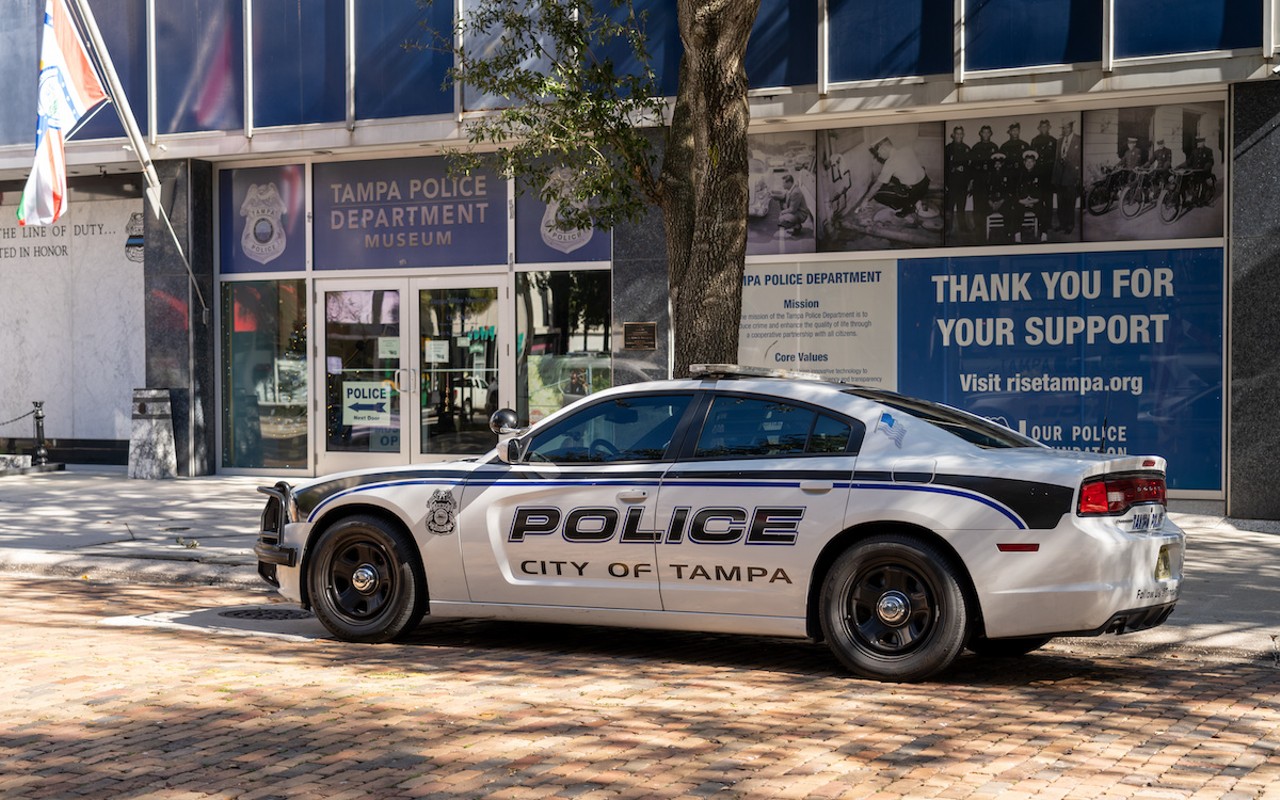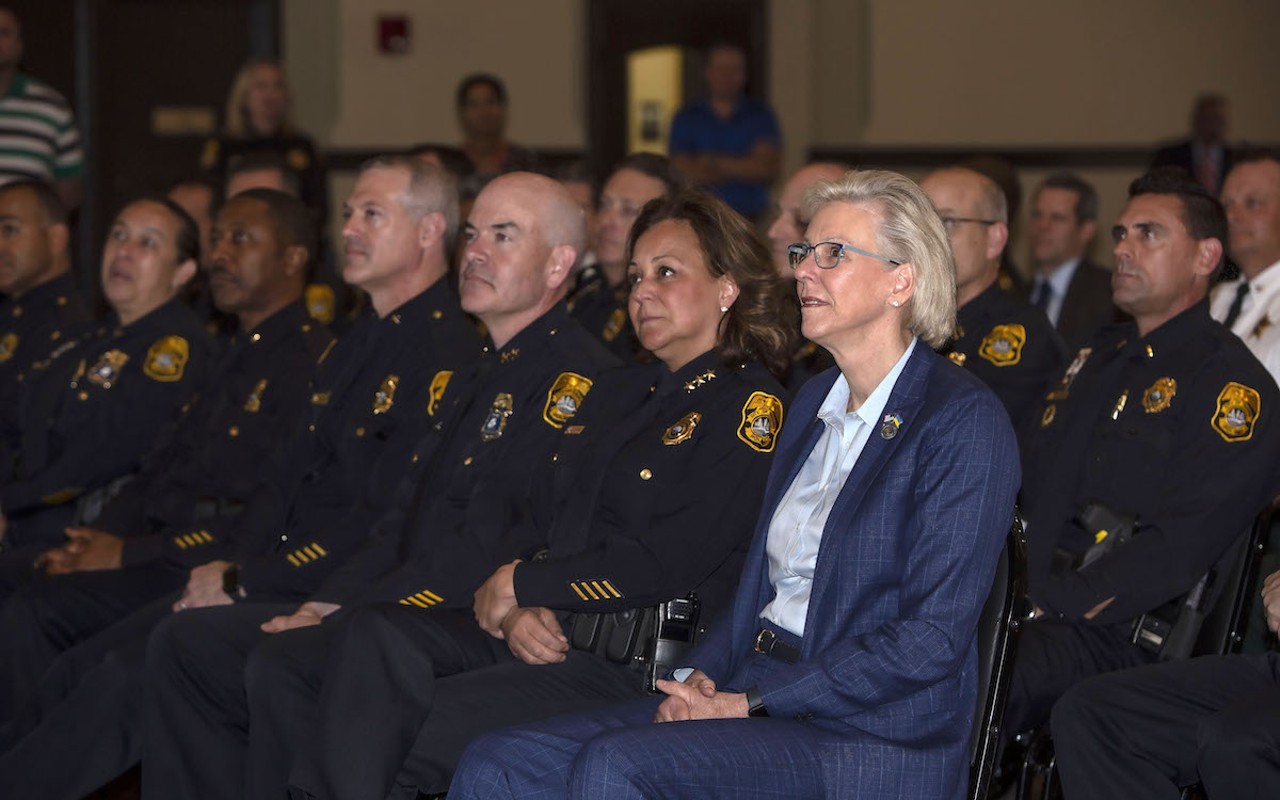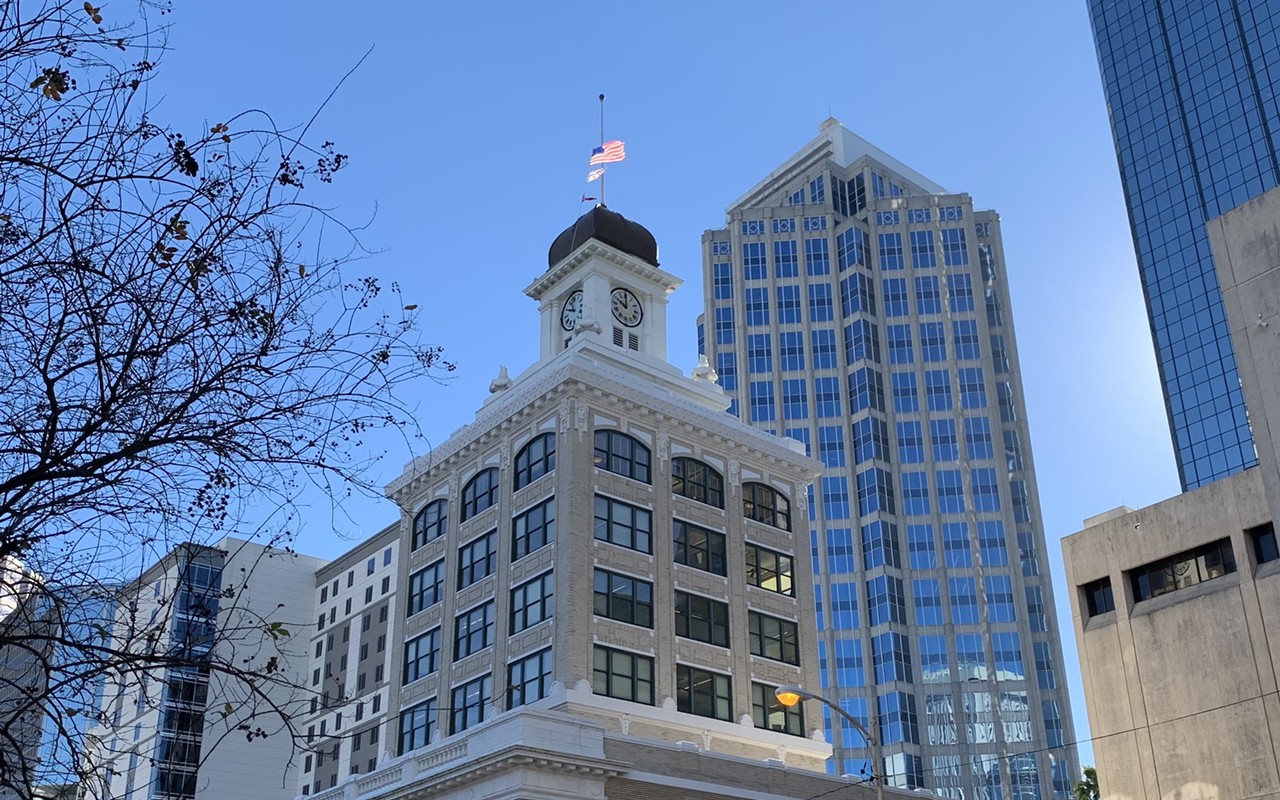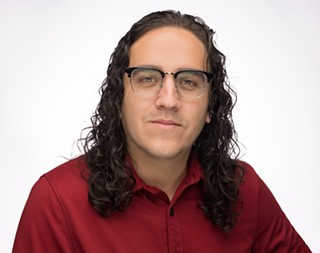The vote came this afternoon, even after the CRB and city council had already overwhelmingly voted for the city legal team to draft an ordinance that would put both options on a ballot for voters to decide. But yesterday, several council members confirmed that they were being lobbied by TPD Police Chief Mary O'Connor and Senior Assistant City Attorney Megan Newcomb to not let the voters decide.
The council vote today came in two separate motions. The first was for the city legal team to draft an ordinance that would let voters decide if the CRB should have an independent attorney instead of using a city attorney, which the ACLU says is a conflict of interest.
That measure passed on a 4-2 vote, with Councilman Guido Maniscalco and Joseph Citro voting against the independent attorney.
But council members Joe Citro, Luis Viera, Charlie Miranda and Guido Maniscalco didn't want to let the public vote happen.
Councilwoman Lynn Hurtak, Orlando Gudes (a former police officer) and Bill Carlson voted in favor of letting the voters decide. But the motion failed 3-4.
Now, the city attorney's office will draft an ordinance for the vote on the independent attorney. That ordinance will have to go through two more readings and votes from council before it can potentially make it to the ballot on March 2023—the same election where Tampa will vote on whether or not to keep current city council members.
In July, the CRB voted to recommend that council let voters decide if the board should have more power by creating an ordinance that would put the matters on a ballot. After that CRB vote, council also decided city staff should draft an ordinance to leave the issues up to the voters.
Since then, city legal and the police chief have lobbied councilmembers against authorizing city staff to create that ballot language.
"We've really heard from the public today regardless of how I feel about the issue, I think the public has spoken," Hurtak said today.
Several speakers were upset that the city had cast them as fringe, outsider groups, and reminded council members that they are in fact their constituents.
"Whoever said we were a fringe group, that's the lie they tell themselves when they look in the mirror," said Yvette Lewis, President of the NAACP. "Because when I look in the mirror, I see somebody fighting for people's civil rights."
Councilman Carlson said that he couldn't understand why TPD and the city would be opposed to more transparency for police.
"If you're not doing anything wrong, I don't see what the problem is," Carlson said.
A majority of the more than a dozen public speakers showed up to ask council for more police accountability, but a representative from the state attorney's office, a vice president of the Police Benevolent Association and retired Judge E.J. Salcines spoke last during public comment to warn of unintended consequences of giving the board subpoena power.
Kimberly Hindman, Chief Assistant State Attorney for SAO 13 said giving the CRB subpoena power would create problems for the state attorney.
"We'd have to navigate what subpoena power means, which is, is that transactional immunity? And what's the judicial oversight over that?" Hindman said. "Almost every one of the cases involves a corresponding prosecution. And a civil body acting and taking statements from people creates problems for cases, that's simply the bottom line."
Councilman Gudes asked Hindman why SAO13 would encounter these problems, while other jurisdictions that have had subpoena power for years, such as Miami-Dade County, Key West, Orange County, and Broward County, were all able to operate despite the subpoena power. "I can't speak to those other jurisdictions, because we don't operate there," Hindman said.
Last year, Castor, a former TPD police chief, stood firm against subpoena power for the 11-person review board which is made up of five Castor appointees, five people appointed by city council, and one appointed by the Hillsborough NAACP.
The desire for more powers for the CRB does not come out of a vacuum. Over the past couple of years, TPD has been plagued with division over vaccines and wearing masks, even during the height of the pandemic.
Last year alone, the department was involved in at least 19 scandals that the public knows of, as violent crimes such as homicide surged in Tampa.
The city is also currently under federal investigation by the U.S. Department of Justice for TPD’s “crime free multi-housing” program, which targeted mainly Black renters for eviction.
This year, the controversies are piling up again. In July, TPD was caught using a spying tactic to pursue crimes; critics call the tactic unconstitutional. In June, officers were caught making fun of a dog shooting that occurred at the hands of TPD and an officer accused his supervisor of imposing DUI quotas, leading to allegedly improper arrests.

